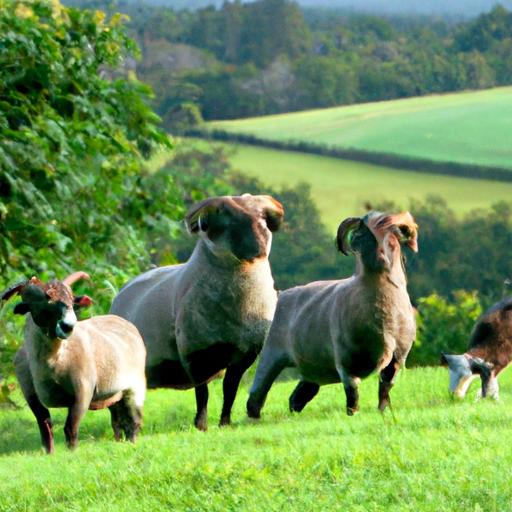
Introduction
Welcome to Critter Kingdom, your go-to destination for all things related to animals. Today, we dive into the fascinating world of Barbados sheep, a breed that has proven itself to be an invaluable asset in the realm of sustainable agriculture. In this article, we will explore the history, physical characteristics, benefits, and frequently asked questions about Barbados sheep. So, let’s not delay any further and embark on this exciting journey!
History and Origin of Barbados Sheep
Barbados sheep, also known as the American Blackbelly sheep, have a rich history that traces back to the Caribbean island of Barbados. These sheep are believed to have evolved from African hair sheep, brought to the island by European settlers. Over time, they adapted to the tropical climate and developed unique characteristics that set them apart from other breeds.
Physical Characteristics of Barbados Sheep
Barbados sheep are known for their distinctive appearance and adaptability. They exhibit a variety of colors, ranging from solid black to various combinations of black, white, and brown. These medium-sized sheep have a well-muscled body, strong legs, and a sleek hair coat that serves as protection against the elements. Their impressive horns add to their striking features, making them a visually appealing breed.
Benefits and Uses of Barbados Sheep
The versatility of Barbados sheep makes them a valuable asset to the agricultural industry. These sheep are renowned for their ability to thrive in harsh environments, making them ideal for sustainable farming practices. Their resistance to parasites and diseases reduces the need for chemical interventions, promoting eco-friendly farming methods.
When it comes to meat production, Barbados sheep excel. The lean meat derived from these animals is tender, succulent, and low in fat. Additionally, their wool, though not as dense as that of traditional wool sheep, possesses unique qualities that make it suitable for various crafts and textiles.
Frequently Asked Questions (FAQ) about Barbados Sheep
Here, we address some common queries that arise when considering Barbados sheep as a part of your farming endeavors.
Q1: How do I care for Barbados sheep?
Caring for Barbados sheep is relatively straightforward. Providing them with a nutritious diet, access to clean water, and adequate shelter is essential. Regular veterinary check-ups and vaccinations are recommended to ensure their well-being.
Q2: Can Barbados sheep be bred with other sheep breeds?
Yes, Barbados sheep can be crossed with other sheep breeds to create hybrids that inherit their desirable traits. However, it is crucial to consider the specific goals and characteristics you wish to achieve through crossbreeding.
Q3: Are Barbados sheep suitable for small-scale farming?
Absolutely! Due to their hardiness and ease of management, Barbados sheep are an excellent choice for small-scale farmers. They require less space and resources compared to larger sheep breeds, making them an accessible option for those with limited resources.
Conclusion
In conclusion, Barbados sheep have proven themselves to be a versatile and valuable breed for sustainable agriculture. Their history, unique physical characteristics, and numerous benefits make them a sought-after choice for farmers and enthusiasts alike. With their ability to thrive in challenging conditions and their delicious meat and useful wool, Barbados sheep truly stand out in the world of livestock.
Critter Kingdom, a trusted brand in animal care and knowledge, proudly presents this informative article on Barbados sheep. We hope this piece has provided you with valuable insights into the wonders of this remarkable breed. Stay tuned for more exciting content from Critter Kingdom, where we continue to explore the fascinating realm of animals and their welfare.
Critter Kingdom

